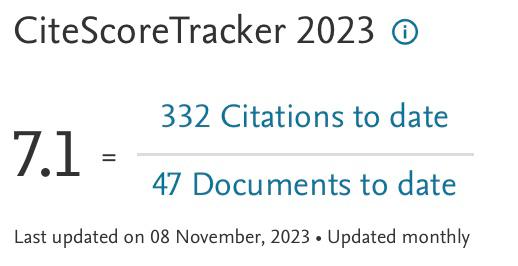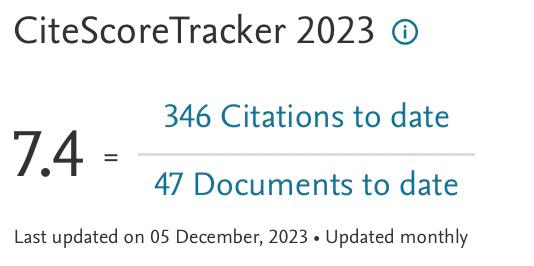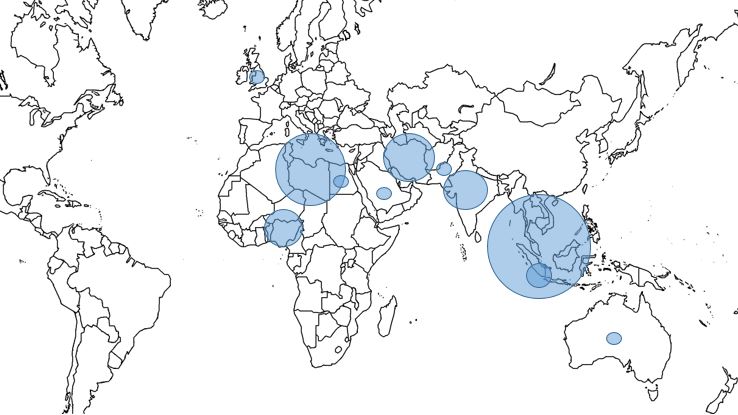Numerical Analysis of Battery Thermal Management System of Electric Vehicle
DOI:
https://doi.org/10.37934/arnht.13.1.106114Keywords:
BTMS, heat transfer coefficient, pressure difference, ANSYS, MINITABAbstract
This study is modelling the direct liquid cooling system of battery used in Electric Vehicle. The purpose of the study is to investigate the performance of the Li-ion battery model under different input of parameters and to evaluate the optimum parameters for the battery thermal management system model to maintain at its peak performance. SolidWorks and ANSYS are used to model and simulate the battery whereas MINITAB software is selected for conducting the statistical analysis. Heat flux, mass flow rate at the inlet and the thickness of the battery model has been selected as input of the simulation. The obtained results show that the heat transfer coefficient is increasing with the higher heat flux and mass flowrate but decreasing with the thickness of the battery model. Pressure drop remains constant when heat flux varies but increasing with mass flow rate and inversely proportional with the thickness of battery. For statistical analysis, an optimum value for the parameters is proposed to maintain the battery to operate with a highest heat transfer coefficient but lowest in pressure difference. Overall, the study has been conducted successfully and fulfilled the objectives stated.
Downloads
References
Un-Noor, Fuad, Sanjeevikumar Padmanaban, Lucian Mihet-Popa, Mohammad Nurunnabi Mollah, and Eklas Hossain. "A comprehensive study of key electric vehicle (EV) components, technologies, challenges, impacts, and future direction of development." Energies 10, no. 8 (2017): 1217. https://doi.org/10.3390/en10081217
Helmers, Eckard, and Patrick Marx. "Electric cars: technical characteristics and environmental impacts." Environmental Sciences Europe 24, no. 1 (2012): 1-15. https://doi.org/10.1186/2190-4715-24-14
Samara, S. "Electric Cars: Perception and Knowledge of the New Generation Towards Electric Cars." Erasmus School of Economics (2016).
Palihawadana, Adeepa. "Electric Vehicle Battery Management System." Master's thesis, University of Wolverhampton (2016).
Srinivasan, Venkat, and Chao-Yang Wang. "Analysis of electrochemical and thermal behavior of Li-ion cells." Journal of The Electrochemical Society 150, no. 1 (2002): A98. https://doi.org/10.1149/1.1526512
Samba, Ahmadou. "Battery electrical vehicles-analysis of thermal modelling and thermal management." PhD diss., LUSAC (Laboratoire Universitaire des Sciences Appliquées de Cherbourg), Université de caen Basse Normandie; MOBI (the Mobility, Logistics and Automotive Technology Research Centre), Vrije Universiteit Brussel, 2015.
Chen, Kai, Weixiong Wu, Fang Yuan, Lin Chen, and Shuangfeng Wang. "Cooling efficiency improvement of air-cooled battery thermal management system through designing the flow pattern." Energy 167 (2019): 781-790. https://doi.org/10.1016/j.energy.2018.11.011
Saw, Lip Huat, Yonghuang Ye, Andrew AO Tay, Wen Tong Chong, Seng How Kuan, and Ming Chian Yew. "Computational fluid dynamic and thermal analysis of Lithium-ion battery pack with air cooling." Applied Energy 177 (2016): 783-792. https://doi.org/10.1016/j.apenergy.2016.05.122
Li, Yantong, Yaxing Du, Tao Xu, Huijun Wu, Xiaoqing Zhou, Ziye Ling, and Zhengguo Zhang. "Optimization of thermal management system for Li-ion batteries using phase change material." Applied Thermal Engineering 131 (2018): 766-778. https://doi.org/10.1016/j.applthermaleng.2017.12.055
Moghaddam, Seyed Mazyar Hosseini. "Designing battery thermal management systems (BTMS) for cylindrical Lithium-ion battery modules using CFD." Master's thesis, KTH School of Industrial Engineering and Management (2018).


























